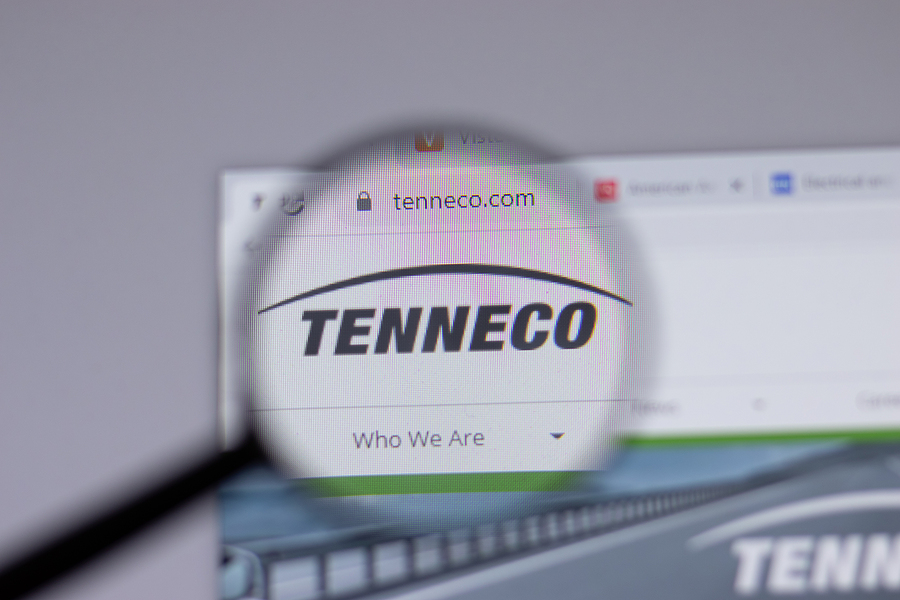It’s been a common refrain for American car owners in the post-COVID economy: “I’d have your car fixed by Friday, I just can’t get the parts.”
And now a leveraged buyout deal involving Michigan-based Tenneco — one of the world’s largest auto parts suppliers — has some observers concerned about the potential impact on the already shaky supply chain if something goes sideways. The deal also shines a spotlight on a broader, more troubling trend in the world of private equity.
If you’re a backyard mechanic who’s grabbed a part for your car from a local auto parts store, there’s a very good chance you’re a Tenneco customer. The same if you’ve taken your car to the friendly, neighborhood mechanic. (If you happen to own a major automobile manufacturer or buy your cars from someone who does, you’re a customer, too.)
In 2022, Apollo Global Management, a prominent private equity firm specializing in distressed debt restructuring, orchestrated a high-stakes acquisition of Tenneco, valued at $7.1 billion, when factoring in Tenneco’s substantial debt. It was a complicated deal involving a complex leveraged buyout (LBO).
Also part of the deal was Lazard, the international financial strategy firm and the world’s largest independent investment bank. According to filings related to the acquisition, Tenneco had engaged Lazard to assist in evaluating its business and opportunities for divestment of certain divisions and a possible sale. Lazard was communicating with Apollo’s senior exec Michael Reiss, urging his company to make the deal.
Missing from any SEC disclosures, however, is mention that Reiss’s father, Richard Reiss, is an independent director at Lazard. According to his bio on Resource America, Richard is “lead independent Director of the Lazard Funds.”
There are no allegations of wrongdoing or even a conflict of interest. But it’s a reminder of how much influence a handful of individuals in the private equity sector can have on America’s financial wellbeing through investments in sectors vital to the U.S. economy.
In the case of Tenneco, it’s the high level of debt absorbed by a company in the automotive sector. Even after a prolonged marketing campaign, $2.4 billion of the debt comprised of unsecured bonds and loans struggled to attract interest from junk-bond investors.
Despite aggressive efforts by Apollo and its co-investors to disgorge Tenneco’s remaining debts, lenders have incurred substantial losses and struggle to offload those liabilities well into 2024. Some $2.4 billion of the debt, comprised of unsecured bonds and loans, struggled to attract interest from junk-bond investors even after a prolonged marketing campaign.
Private equity firms often employ leveraged buyouts to acquire companies, aiming to boost returns through aggressive financial engineering. However, this strategy comes with significant risks. In Tenneco’s case, the heavy residual debt from Apollo’s beleaguered debt resales may begin to weigh on the company’s performance and financial outlook. With such a massive financial burden, Tenneco finds itself grappling with increased vulnerability, which could jeopardize its operational stability and future prospects. This situation is not just a concern for the company’s shareholders but has broader implications.
Why should the average American, reading the newspaper (probably on their smartphone) over breakfast, care about the inner workings of international private equity companies? Because, as the Alliance for Automotive Innovation notes, “A robust auto manufacturing sector is vital to a healthy U.S. economy. Autos drive America forward by supporting a total of 9.7 million American jobs, or about 5 percent of private-sector employment.”
And then there are the nation’s recent struggles with supply chains in the automotive sector that cost the economy billions in lost productivity in 2020 and the COVID pandemic.
If Tenneco falters under its debt, it could disrupt the supply chain for essential automotive components, potentially leading to higher prices for consumers and impacting the overall stability of the auto parts industry.
The ripple effects of such financial strain extend beyond the immediate market. Disruptions in the automotive parts sector can lead to a cascade of problems: delayed repairs and maintenance for vehicles, increased costs for consumers, and even potential job losses within Tenneco and its supply chain. That, in turn, can impact local economies and have broader economic ramifications.
The situation with Tenneco raises critical questions about the broader implications of leveraged buyouts conducted by private equity firms. While these deals are often justified by the promise of value creation and strategic improvement, the risks associated with high levels of debt can sometimes overshadow these benefits. For the employees, customers, and local economies dependent on companies like Tenneco, the consequences of such high-risk financial maneuvers are far from abstract—they are real and potentially damaging.
As Tenneco navigates this tumultuous period, the outcome of Apollo’s leveraged buyout will likely offer important lessons on the sustainability of such financial strategies and their impact on the companies, industries, and communities involved.

